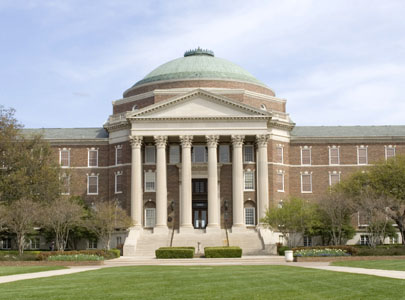SMU forum examines freedom of speech,
hate crimes against Muslims and Sikhs
SMU's American Constitution Society chapter sponsors a "Hate Crimes and the Law" forum.

By Sarah Mervosh
The Dallas Morning News
Shortly after the Sept. 11 terrorist attacks, a white supremacist went on a shooting rampage and shot Rais Bhuiyan from about five feet away. Bhuiyan was forced to lie still on the ground and pretend he was dead until his attacker walked away.
Bhuiyan, who is Muslim, lost his vision in one eye. But he survived. Two others weren’t as lucky.
This afternoon, Bhuiyan and two visiting law professors spoke at Southern Methodist University about hate crimes, freedom of speech and how to reconcile the two in the wake of violent unrest over an anti-Islam film and the shootings at a Colorado theater and Wisconsin Sikh temple.
Sahar Aziz, associate professor at Texas Wesleyan’s law school, said that countries like France, Germany and Finland place restrictions on hate speech that can lead to prosecution. In the United States, speech is protected unless it will lead to an immediate action that would violate the law, she said.
“We, as Americans, have a very unique perspective on free speech,” she said.
In the United States, hate crimes against Muslims have increased in recent years. Nearly 8 percent of religiously motivated hate crimes were anti-Muslim in 2008. By 2010, that number increased to 13 percent, according to FBI statistics.
“We’re no longer talking about backlash [from 9/11],” Aziz said. “It has become, unfortunately, an entrenched stereotype.”
And sometimes, discrimination against Muslims has morphed into discrimination against Sikhs, said Dave Sidhu, assistant professor of law at the University of New Mexico.
“In the aftermath of 9/11, individuals who are Sikh but look Muslims have been targeted,” Sidhu, who is Sikh, said.
He encouraged Sikhs to host open houses at temples and to reach out to neighbors. “The one entity that can best protect Sikh Americans is themselves,” he said.
Bhuiyan has lived out that idea by forcing others to judge him for who he is, not for perceptions about his religion.
Bhuiyan got to know his attacker, Mark Stroman. He forgave him. He fought against the death penalty for the man who had tried to kill him.
Ultimately, Bhuiyan was unable to stop Stroman’s execution, but he succeeded in healing the rift between the two men. Before his death, Stroman told Bhuiyan, “I love you, bro.”
Bhuiyan urged students in the audience to stand up against hate crimes. “It may not affect your life. It may not affect your family. It may not be your problem today, but it could be yours tomorrow,” he said.
# # #